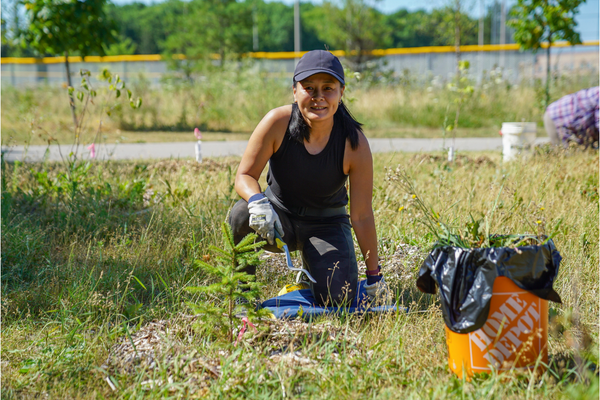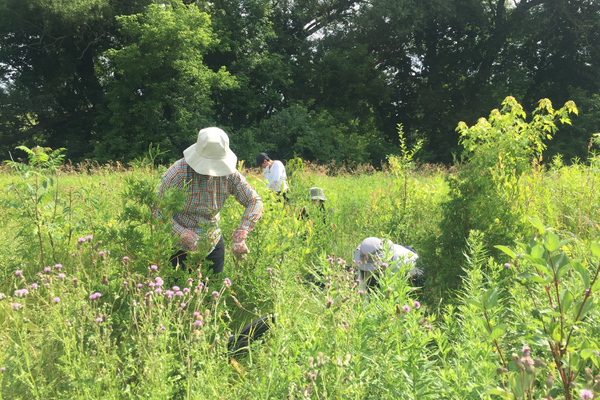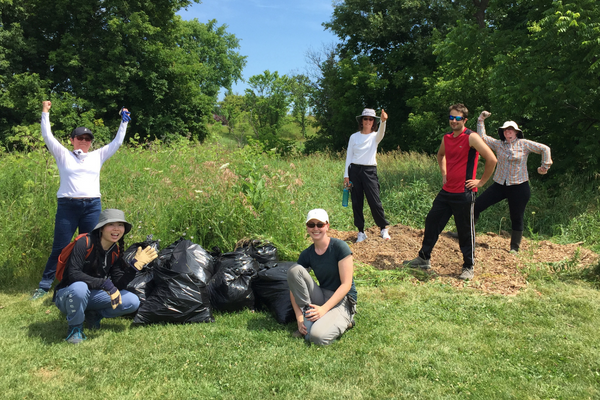Over a July weekend, LEAF headed to York Region to steward three previously naturalized planting sites. Staff were joined by a dedicated team of volunteers and successfully removed invasive plant species while also providing ample mulch to the plants.
LEAF staff and volunteers gathered to visit three previously naturalized planting sites in Richmond Hill and King City. We started off the weekend with two major tasks in mind: removing invasive species and mulching as many young plants as possible. Invasive species interfere with the growth of young plants by competing for water, nutrients, and space. Along with removing invasive species, placing mulch around the base of a plant can further ensure its success by retaining water, providing nutrients and preventing more invasive species from sprouting up.

Over the course of the weekend, LEAF staff identified invasive plant species in each area. These included: white sweet clover (Melilotus albus), Queen Anne’s lace (Daucus carota), and creeping thistle (Cirsium arvense). However, they were no match for our determined team of volunteers! We quickly got to work clearing away these species and creating more space for the newly planted native species. We made sure to store the pulled invasives in black garbage bags – something I learned is done to prevent further spread of the species through solarization. Solarization heats the plant material, which ensures the invasive plant species won’t re-root and increases the rate at which the organic material breaks down.

As we worked away at each of these sites, I watched as trees and shrubs emerged from the crowding invasive plants. I was reminded what a difference this would make for the growth and success of each plant. At one site, we were even greeted by a hummingbird moth (Hemaris thysbe), and some ebony jewelwings (Calopteryx maculate). It was a welcome sight and felt like they knew the importance of the work underway.

Despite the heat and humidity, I was amazed by the incredible effort that each volunteer put in during our time together. While we only spent a few hours at each site, the change from start to finish was undeniable. Seeing this transformation reinforced what a large impact a small group of people can have on improving the health of the urban forest. We finished the weekend, sweaty and a little sore, but feeling accomplished and assured that the young trees and shrubs are doing well.
Julia Leith is the Community Stewardship Assistant at LEAF.
These stewardship efforts are supported by the City of Richmond Hill, the Township of King, Ontario Power Generation and the Invasive Species Centre.
